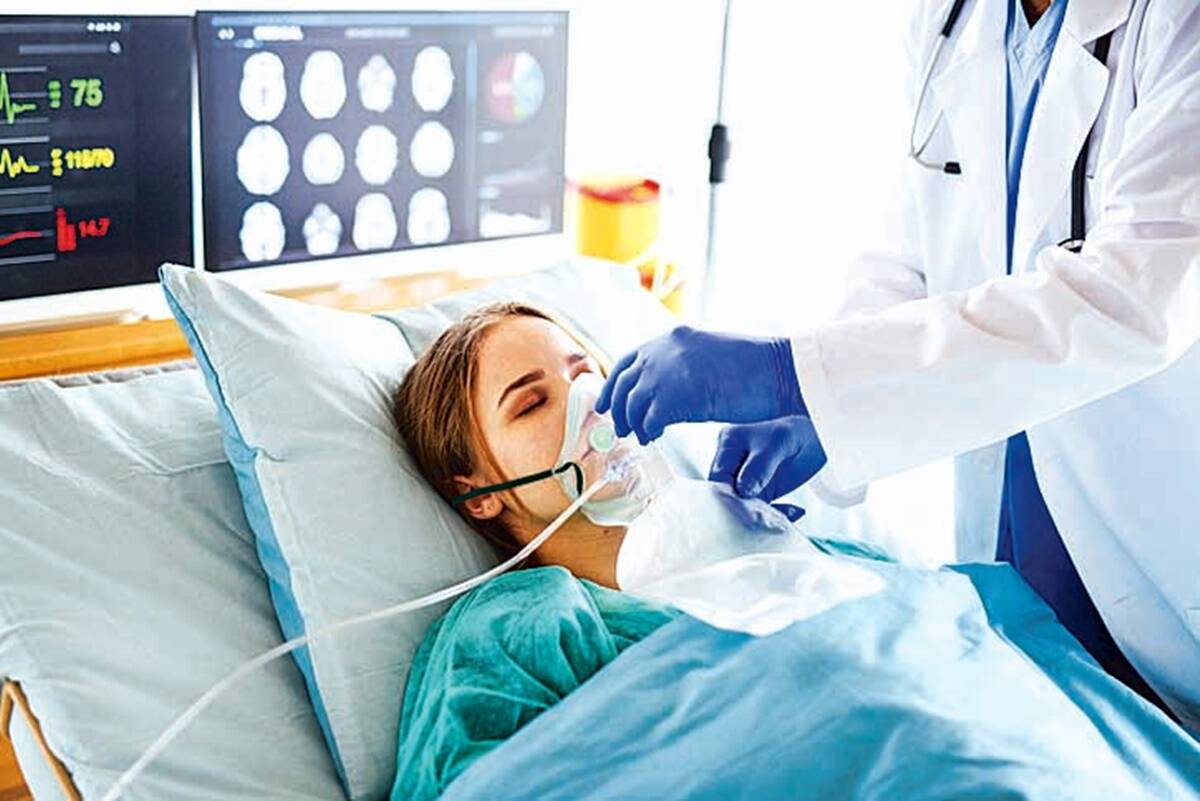However, medical research is gradually learning more about how this virus behaves.
Last month, Robert R Redfield, the chief of the Centers for Disease Control and Prevention (CDC), said that the completion of general vaccine distribution and the return of ‘regular life’ is probably not realistic until mid-2021.
With vaccine expectations still unclear, news reports suggest that India is buying 100 million doses of Covid vaccine Sputnik V from Russia with an agreement signed between Russian Direct Investment Fund and Dr Reddy’s Laboratories. Sputnik V has made Russia the first country to claim a breakthrough in developing a vaccine for Covid-19. Many other developers-Pfizer Inc, Johnson & Johnson, AstraZeneca-Oxford University, Novavax and Moderna-have trials over the next few weeks.
Related News
But a new dimension to the rising post-Covid complications has made all look for a fast procurement of a vaccine. A case in point is the Union home minister Amit Shah’s return to the All India Institute of Medical Sciences in Delhi after he complained of fatigue and body ache-four days after he tested negative for coronavirus in September. Veteran Congress leader and former Assam chief minister Tarun Gogoi was also admitted to the ICU in September after his blood oxygen level drastically went down in post-Covid-19 complications. The 85-year-old had tested positive for the virus in August.
Medical experts and doctors have stressed on the magnitude of the disease, which was earlier restricted to the lungs, but has now turned into a multi-system disease affecting the body. In July, Natalie Lambert, research professor of medicine at Indiana University in the US, warned against complications such as extreme fatigue, breathlessness and hair loss. The CDC in the US reported its own survey results a few weeks later and acknowledged that at least 35% of those surveyed had not returned to their usual state of health.
Mild yet critical
While most people have relatively mild and manageable symptoms, those with illnesses such as diabetes or heart disease are more at risk. Major complications include a condition known as cytokine release syndrome, where an infection triggers the immune system to flood the bloodstream with inflammatory proteins called cytokines, which can kill tissue and damage organs, including lungs, heart and kidneys. Other complications include acute respiratory failure, pneumonia, acute respiratory distress syndrome (ARDS), acute liver, cardiac or kidney injury, septic shock and disseminated intravascular coagulation.
The younger populace might suffer from multisystem inflammatory syndrome in children (MIS-C) or paediatric multisystem inflammatory syndrome (PMIS) with symptoms like fever, belly pain, vomiting, diarrhoea, rash, headache and confusion.
Talking about the sub-acute morbidities, NITI Aayog member and head of the national task force on Covid-19, VK Paul explained in a news briefing: “Post-Covid sub-acute morbidities are a new dimension. Scientific and medical communities are keeping an eye on it.”
The acute insult in Covid-19 is systemic and it may progress to involve other systems. Comorbidities like diabetes, hypertension, obesity, coronary artery disease and chronic liver disease (CLD) co-exist in the general population, more so in the middle-aged and elderly. SK Sarin, director, Institute of Liver and Biliary Sciences (ILBS), talks about the Apcolis Study (APASL Covid-19 Liver Injury Spectrum Study) done in July and suggests that deranged liver functions have been reported in 14-53% patients without known liver disease. Patients with severe disease showed a higher frequency and degree of liver dysfunction, while in milder cases, the liver injury was transient.
While the true burden of liver disease is not known, Sarin feels liver diseases contribute to global disease burden in the form of metabolism associated liver disease (MAFLD), alcohol-associated liver disease and viral hepatitis. “During the pandemic, it is very likely that CLD patients would be exposed to infection. Many cirrhotic patients are required to attend hospitals regularly and thus become susceptible to SARS-CoV-2 infection,” he says, adding that in severe complications, the lung injury often stays for weeks and chronic lung injury may occur in nearly one-third of patients. “Such patients may require long monitoring or oxygen therapy if exposed to more infection. Also, diarrhoea and intestinal infection can occur for many weeks, as the virus is secreted into guts and causes change in the bacteria of the bowel… this is common in children under the age of 18. Some may suffer from fear psychosis and it’s not known for how long it stays,” he says.
Moderate Covid-19 has common side effects like fatigue, joint pain or rashes. Nikhil Modi, senior consultant, respiratory diseases and sleep medicine, Indraprastha Apollo Hospitals, Delhi, says, “As many as 15% patients recovering from Covid-19 are suffering from complications like prolonged fatigue and body ache followed by weight loss. While these are just short-term health impacts, the path of post-Covid recovery can come with additional long-term health complications. While Covid-19 is a respiratory disease, the infection can cause inflammation in other organs of the body, the impact of which can cause long-term health complications like heart-related diseases, pulmonary fibrosis and brain damage.”
Research & therapy
The currently available therapies are mainly limited to insulin and blood glucose control, but do not prevent diabetes-related complications that can cause irreversible vital organ damage and are the leading cause of death. ET-traps is a Cambridge-based startup founded by Arjun Jain, who has created a soluble binder to the molecule Endothelin-1, or (ET)-1, that aims to lower the pathologically elevated levels of ET-1 without negatively affecting its important physiological functions, which include maintenance of blood pressure, tissue differentiation and cell proliferation. “I started working on a molecule called endothelin (ET)-1 and realised that ET-1 is elevated in different diseases, including diabetes, different cancers, cardiovascular diseases and neurodegenerative disorders. Based on this, I worked on a potential therapeutic that would potently bind and sequester increased levels of ET-1,” explains Jain, who has now been granted a US patent for his technology. Pre-clinical trials on animals showed a “significant return to non-diabetic levels”, according to a recently published paper by Jain in the journal Drug Discovery Today.
However, medical research is gradually learning more about how this virus behaves. Randeep Guleria, the director of AIIMS, who also heads the clinical research group of the national Covid-19 task force, said in an interview with The Indian Express, “The infection starts off with the lungs as a pulmonary disease. But it has significant vascular problems… And can also be termed as a systemic disease because it involves the entire body. We also have authorisation for remdesivir and tocilizumab for emergency-use only.” Initial studies did not show much benefit, but subsequent studies showed some benefits in decreasing hospital stay by four days, he said. There were suggestions that in more severe patients, it may have a mild benefit, but it was significant to say that there was a mortality benefit. “It is a promising repurposing drug rather than a really effective drug,” he said.
Yet plasma therapy is not for everyone. In a community, only 10-15% have antibodies and even people who recover don’t show that robust antibody production, according to studies.
Guleria stressed on the need for post-Covid clinics at all tertiary care hospitals. “Post discharge of patients, there should also be follow-ups to understand post-Covid complications,” he says.
Highlighting strategies to reduce the risks associated with pulmonary fibrosis, Anant Mohan, head of pulmonary medicine at AIIMS, suggested in an Indian Express report to minimise the risk of Ventilator-Induced Lung Injury (VILI) by using protective lung ventilator settings. “Lung transplant for post-Covid fibrosis can be performed on patients with extensive fibrosis and respiratory failure,” he said.
Some major complications
Pulmonary fibrosis: A common problem that is being seen in most patients after recovering from Covid-19 is scarring of the lung tissue. This can lead to long-term breathing problems and, in severe cases, dependence on external oxygen support
Heart health: After recovering from mild symptoms, people have been reported to suffer lasting damage to heart muscle, making them more susceptible to myocarditis (inflammation of heart muscle) and heart attacks
Brain health: Covid-19 can cause strokes, seizures and Guillain-Barre syndrome (a condition that causes temporary paralysis) even in young people. It may increase the risk of hampering cognitive functions of the brain or make blood cells more likely to form clusters of clots. While large clots can cause heart attacks and strokes, much of the heart damage caused is believed to stem from very small clots that block tiny blood vessels (capillaries) in the heart muscle. Other organs affected include lungs, legs, liver and kidneys
Not yet proven
Alternative remedies or herbal therapies such as teas, essential oils, tinctures have not been proven scientifically to prevent or cure Covid-19
Epidemiological research has to be carried out to include homeopathic treatment and compare it to established treatments
Herbal or dietary supplements (and some prescription drugs) come from natural sources, but ‘natural’ does not mean that it’s a safer or better option
Get live Stock Prices from BSE, NSE, US Market and latest NAV, portfolio of Mutual Funds, calculate your tax by Income Tax Calculator, know market’s Top Gainers, Top Losers & Best Equity Funds. Like us on Facebook and follow us on Twitter.
![]() Financial Express is now on Telegram. Click here to join our channel and stay updated with the latest Biz news and updates.
Financial Express is now on Telegram. Click here to join our channel and stay updated with the latest Biz news and updates.



